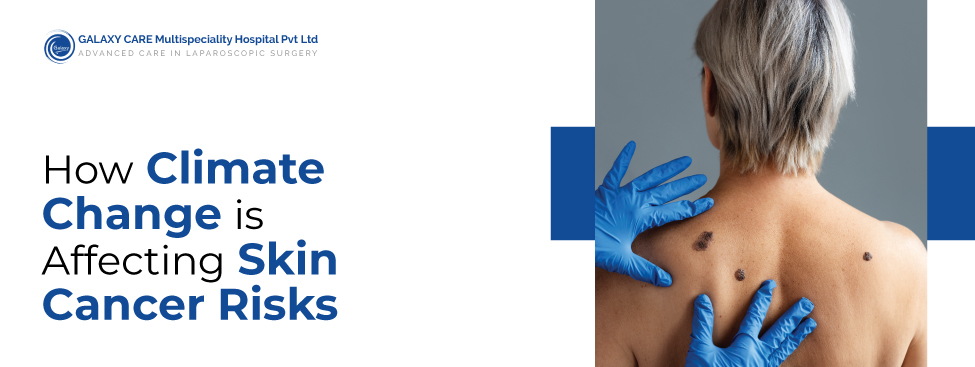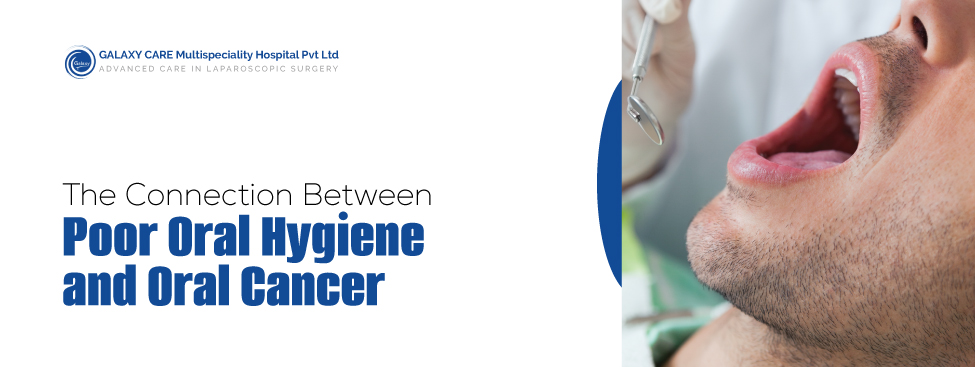
How Climate Change is Affecting Skin Cancer Risks
Have you ever wondered how our changing environment might be posing hidden threats to your health, especially your skin? Climate change, a subject often discussed in the context of melting glaciers and rising sea levels, can profoundly impact other areas of our lives, including our risk for skin cancer. As global temperatures rise, the ozone layer continues to deplete, and harmful UV radiation increases, the relationship between climate change and skin cancer becomes more concerning than ever.
According to the National Library of Medicine, “Exposure to ultraviolet (UV) radiation is associated with approximately 65% of melanoma cases, and 90% of non-melanoma skin cancers (NMSC), including basal cell carcinoma (BCC) and squamous cell carcinoma (SCC)”.
Hence, understanding the connections between these phenomena and protecting yourself isn’t just necessary—it’s a step toward safeguarding your skin’s health for years to come. Let’s explore how climate change plays a role in increasing skin cancer risks and why consulting a Skin Cancer Specialist in Pune may be the proactive choice for your health. Let’s begin.
The Role of Climate Change in Skin Cancer Risks
Climate change has brought about significant environmental shifts that directly contribute to elevated skin cancer risks. From increased UV radiation to changing weather patterns, the effects are multilayered. Recognizing these changes and how they enhance exposure to harmful elements puts us in a better position to take preventive actions.
1. Increased UV Radiation Exposure
One of the most direct consequences of climate change is the depletion of the ozone layer, which acts as Earth’s natural sunscreen by filtering harmful ultraviolet (UV) rays from the sun. Unfortunately, due to certain human activities, such as releasing chlorofluorocarbons (CFCs) into the atmosphere, the ozone layer has thinned over time.
- With less protection from UV radiation, more harmful rays penetrate the Earth’s surface, increasing the likelihood of sunburns, premature skin aging, and, ultimately, the risk of skin cancers like melanoma.
- Adopting preventive measures, such as regular use of sunscreen even on seemingly cloudy days, can offer some shield against such increased exposure.
2. Global Warming Prolongs Sun Exposure
With global temperatures rising, people are more inclined to spend time outdoors, whether recreationally, for work, or simply to cool off in natural waterways. Hotter conditions may result in longer periods of unprotected sun exposure. Individuals who don’t use UVA/UVB protective clothing or fail to reapply sunscreen every few hours exponentially increase their risk of developing skin cancer.
3. Migration Toward Subtropical Regions
Climate change has also influenced human migration patterns, with many people moving toward subtropical regions due to weather patterns, economic opportunities, or lifestyle preferences. These regions receive higher levels of intense sunlight than temperate climates, leading to greater cumulative exposure to carcinogenic UV rays.
- This shift means individuals who have never been exposed to high UV radiation levels are at sudden, pronounced risks.
Pollution’s Role in Skin Cancer Development
While UV radiation remains the primary culprit when discussing climate and skin cancer links, pollution also plays a silent yet influential hand. Urban environments often experience heightened levels of air pollutants due to vehicle emissions, industrial waste, and deforestation. These factors accelerate oxidative stress on the skin.
How does this connect to skin cancer?
- Pollutants weaken the skin’s natural barrier and break down collagen, exacerbating sensitivity to UV rays. When the skin’s protective mechanisms are compromised, mutations in skin cells are more likely, leading to cancers like basal cell carcinoma or squamous cell carcinoma.
- Pollution combined with UV exposure acts as a double-edged sword, attacking the skin from within and outside.
Given the rising impacts of environmental stressors on our skin health, preventive healthcare, including consultations with a Skin Cancer Specialist in Pune, is crucial to minimize risks.
Darker Impacts: The Urban Heat Island Effect
Urbanization exacerbates the effects of climate change through phenomena like the Urban Heat Island (UHI) effect, which makes cities much warmer than surrounding rural areas. This increased temperature environment leads to:
- Prolonged heat exposure that incentivizes clothing choices (like sleeveless tops) which offer less protection from UV rays.
- Amplification of smog formation which aggravates oxidative stress and damages skin at the cellular level.
- Greater absorption of solar energy by concrete structures elevates the risk of heat-related illnesses, along with skin damage.
What You Can Do to Protect Yourself
While climate change might seem like an overwhelming issue to tackle individually, there are concrete steps you can take to protect your health today.
- Daily Sunscreen Application Use a broad-spectrum sunscreen with at least SPF 30-50, and apply it 20–30 minutes before stepping outside. Reapplication every two hours or after swimming ensures optimal protection.
- Wear Protective Clothing Lightweight, full-coverage clothing like UV-blocking shirts, wide-brim hats, and UV-protective sunglasses significantly reduce exposure risks.
- Avoid Peak Sun Hours The sun emits its strongest UV rays between 10 am and 4 pm. Plan outdoor activities in the early morning or late evening.
- Regular Dermatological Exams Early detection of unusual moles or skin lesions could make all the difference in effectively treating skin cancer. If you live in Maharashtra, visiting a top Skin Cancer Hospital in Pune, like Galaxy Care Hospital, ensures comprehensive care for your skin.
Take Climate Change Seriously for Your Skin Health
Climate change is no longer an abstract concept relegated to science journals or environmental conferences—it’s affecting real lives in serious ways, including increasing skin cancer risks. From intensified UV radiation to the urban heat island effect, skin health is under growing threat.
The connection between climate change and cancer drives home the importance of being proactive about your skin health today. Preventive habits like sunscreen application, protective clothing, and periodic skin checks will help significantly.
If you’re in or near Pune, we urge you to choose the best care available to safeguard your health. With superior skin cancer expertise, cutting-edge technology, and compassionate patient care, Galaxy Care Hospital is the leading Skin Cancer Hospital in Pune. Don’t wait—schedule your consultation with our Skin Cancer Specialist in Pune and take the first step toward protecting yourself from the growing risks of skin cancer.
Your skin deserves nothing less than the best!


